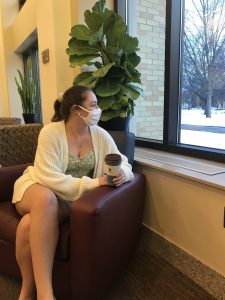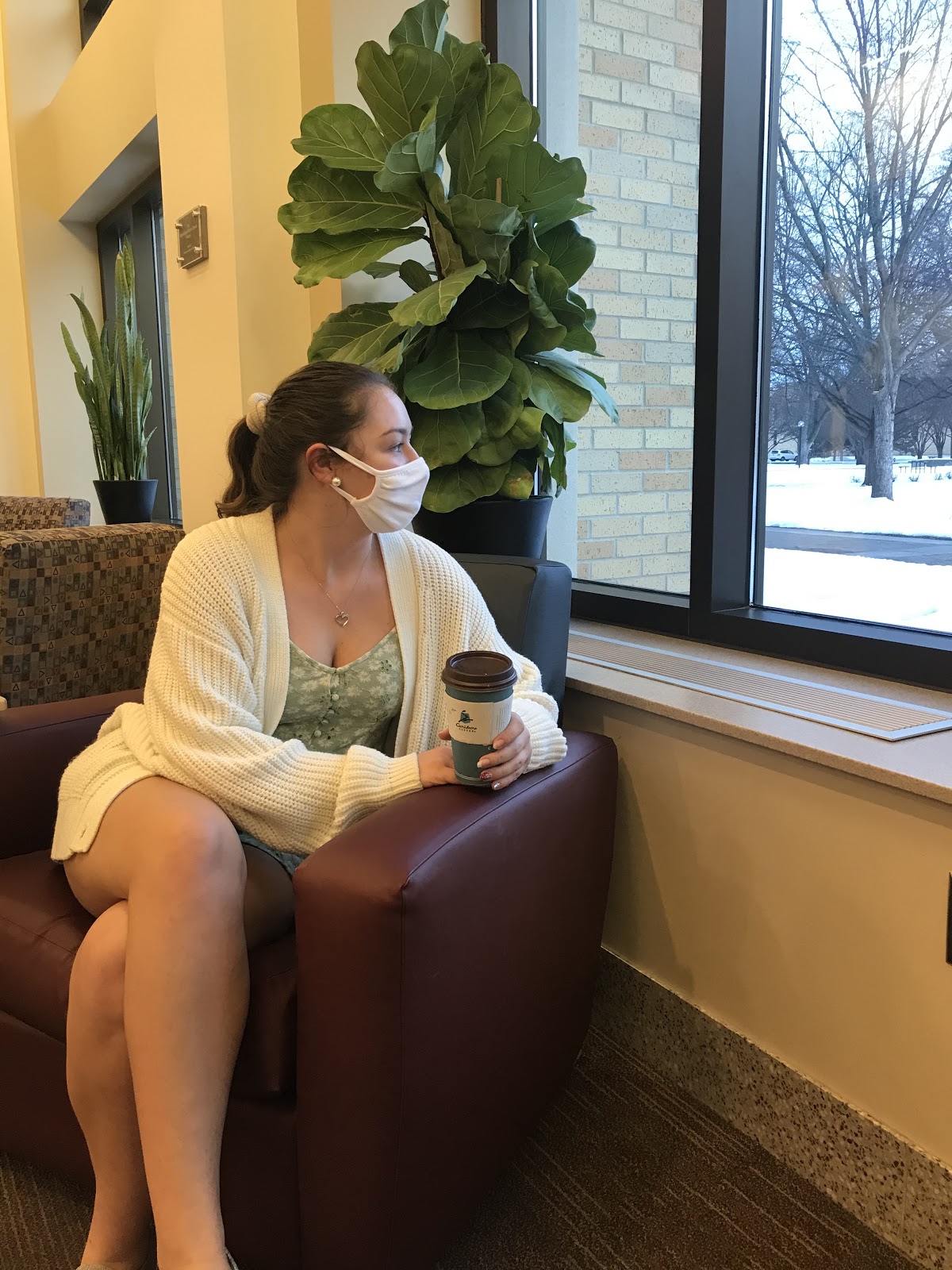Strained eyes, slumped posture and tired faces: the modern student. Online schooling was an unprecedented learning experience for most Concordia students, but one which all had to endure. From students to staff, the fall semester brought many challenges. However, now entering the spring semester, the campus body knows what it’s walking into.
Kirsten Theye, associate professor in the communications department said, “My students this semester seem more comfortable and maybe more eager to be back. In the fall, there was anxiety about what this could all look like and if they could manage learning via zoom or with a mask on. Now, I think there is a little more confidence that they can.”

The new year brought with it a collective desire to leave behind all the bad in 2020, including the hardships of online schooling. Procrastination, isolation and lack of motivation are all familiar to the student body as of last semester.
Sophomore Jess Bray said, “It is really easy to just close the tab and not think about it versus being in a class and having a professor right there.”
Students, presented with a new reality, struggled to adapt quickly. The revised academic schedule impacted this. With minimal breaks over the semester, students were burnt out.
“I know from so many conversations with students and other faculty and staff how utterly exhausting the fall semester was. They couldn’t catch a breath,” Theye said.
Students were granted a wellness day, February 15, after a petition arose calling for more respite days. While classes will still be held, the day will be dedicated to wellness.
First year student Gerriana Miller said, “I definitely will be a lot more thankful [for the respite day] this semester than I was last semester.”
The first semester took many by surprise, but the second semester will not. Backed with experience, students know what to expect and are looking to do things differently.
“I have personally been trying to keep my camera on in classes because I think it really does keep me centered. It keeps me more focused,” Bray said.
Limiting distractions is another tip for students. Turning off or silencing can help ease distractions.
Proactively structuring days can help avoid isolation. Utilizing a study room instead of staying in dorms can help students focus as well as allow them to see other students.
Despite these tips and students’ desire to do better this semester, online schooling will continue to be hard for students and faculty.
“I think that one of the things I enjoyed the most in the classroom was just the laughter—it’s the energy. You could come to class feeling one way and after all the conversation and energy, you could leave the class feeling much better,” Theye reflects. “Some of that is still happening, but I am still missing the laughter.”
Online schooling has challenged both students and staff, but if anything, this pandemic has created more awareness and understanding of each other.
“We are all in the same boat. Let’s just get through it together and hopefully, we can wait out the storm and go back to a more normal life,” Bray said.
Being knowledgeable about others’ situations and communicating will be important this next semester.
“Know that [students] are trying even though it doesn’t always feel or look like it because trying looks a little different this semester. During the pandemic with lower motivation and mental health—a lot of students are struggling being so isolated—it is important to have larger grace periods and more open communication,” Bray said.
Togetherness will be the key to conquering this semester.
Theye claims, “Now more than ever, we need to take care of each other. Follow those COVID protocols and reach out to each other. Be the one to send the text for Zoom coffee, or go for a walk. We really need to pull together and take care of each other.”

